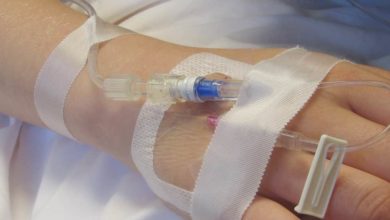After an arduous, often heart-breaking, demoralizing, seemingly endless, meaningless, and fruitless three years of applying, I finally got into medical school. This article outlines why I applied to medical school, and a bit about my personal statement.
“Why do you want to be a doctor?” is the question on repeat throughout this process. It has bounced around in my head and off the lips of friends, family, interviewers, and my advisor when I first mentioned my plans to apply to medical school five years ago. My advisor had earned an MD but decided not to practice, opting instead for a career in health economics and policy. I felt blindsided by his question, and stuttered my way to a truthful though wholly inadequate answer: I told him that I had grown up around medicine with two physician parents, and watched how it saved the life of my sister, when her intussusception was misdiagnosed as an infant, and – after seeing my parents help family members and friends through sickness and the final stages of terminal illnesses – I could not imagine raising a family in a household without a physician.
||Read more on having physican parents||
I will not enumerate the deficiencies of this response – suffice it to say, I had not really considered the question before. During three application cycles I continually struggled with the answer in my personal statement, on interviews, and to myself. I did not begin applying immediately, but instead spent a year and a half after graduation studying health policy and its outcomes. I grew restless, feeling that my work was too removed from the patient population I was studying. I switched jobs to work in R&D at pharmaceutical startup, enrolled in post-bac courses, and began the application process.
I applied to a few schools at the end of the application cycle the first year, and was granted one interview. After visiting campus, meeting students, and interviewing I was exhilarated and sure that medicine was the right place for me. I wanted to feel at home in those white linoleum-floored corridors, to leave anatomy lab smelling like formaldehyde but knowing more intimately the body’s organ systems, and to eventually have the gravitas necessary to hold a patient’s hand and assure her that everything would be okay.
I ended up being waitlisted, and had to begin all over again. My MCAT scores were expiring, so I retook the exam and enrolled in upper division biology classes to supplement my science coursework and GPA. It was around this time that I started to notice that all of my leisure reading was about doctoring and disease; my favorite newspaper columns dealt with healthcare reform or living with cancer, and I discovered personal heroes in physicians like Atul Gawande, Paul Farmer, and David Ansell.
My resolve to go to medical school was growing, but I was continually searching for a way to articulate it. The second year I rewrote my personal statement, applied somewhat more broadly and earlier, and was granted two interviews. Again, I was waitlisted.
I was itching to start my medical career, but knew that for the third round of applications I would have to completely overhaul my approach. I was failing to express in meaningful way my motivations for medicine – even in my own head. “Making an impact” and “helping people” are things that can be done in many professions; you can come by “strong, intimate personal connections” by being a financial planner or masseuse. So why medicine?
The first step was to express the answer in 5300 characters or less in my personal statement. From year one, this exercise forces you to come up with the words. After three years of applying, here are the reasons I have articulated for myself (in no particular order):
- I believe that access to health care is a fundamental human right and am bothered by disparities in both access and outcomes according to socioeconomic, geographic, and racial/ethnic characteristics; I want the opportunity to address these disparities
- I care about how people die as much as how they live – barring the suicide of a non-terminally-ill individual, I believe that self-determination and dignity in end-of-life decisions is important, and I want to be an advocate for them
- I care about our economy – health care costs represent approximately 16% of GDP and are growing without commensurate improvements in health outcomes – I believe that I will have power to influence the rational provision of evidence-based cost-saving care as a physician
- I am interested in the human body – how it works, and what happens when it goes wrong (I waste hours searching NEJM’s Images in Clinical Medicine) – I want to study this first-hand
- I grew up around medicine – I know what compassionate care looks like, and think that I will be good at providing it
In my first essay I described my road to applying, discussing how each activity contributed to my understanding of why medicine was right for me. This was a “narrative resume” personal statement, and – as I later learned – was a mistake. It did not sufficiently differentiate me from other applicants with similar experiences (volunteering, research, etc.) and motivations for medicine. The second year’s was somewhat better but was still jumbled and lacked a strong takeaway message.
After spending time with my dedicated team of editors, (friends and family I enlisted, along with a physician writing coach), I realized that I needed to generate a more “personal” sketch that not only touched on my reasons for wanting to become a doctor, but also reflected something personally important to me.
I wrote about running, my relationship with my mother, and a brief clinical experience. It is difficult to pinpoint a single event that sparked my interest in medicine, so of course this was crafted to best tell a story. I also attempted to highlight my dedication to hard work (running) and personal relationships. This was an honest attempt to describe my desire to be a doctor using experiences outside of my premed track.
Unlike many other applicants, I do not have a story about building a hospital in Central America, being a volunteer medical translator at a makeshift clinic in a rough part of town, or facing hardship growing up. I could not simply say that my parents are doctors, and I want to follow in their footsteps, as that is not evidence of thoughtful decision-making or a proclivity for the care of other human beings. In the end, however, I discovered through this three-year process my own reasons for applying, and perhaps that is what allowed me to come up with a personal statement that resonated enough to get a few more interviews, and finally accepted.
||Read more about Emily’s current motivation for medicine||
||Read Emily’s Path Part 2||



